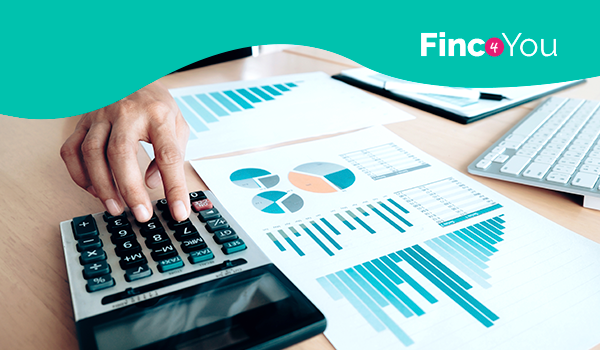In a recession, it’s common for many people to rely on credit cards and loans to keep their finances in balance. get your credit approved.

It’s the ultimate catch-22, as these financial products can be even harder to qualify during a recession. That’s right, according to historical data from the Federal Reserve Bank of St. Louis.
He found that traditional bank credit growth slowed during the 2007 recession and remained deflated for the next four years. Loans can be a powerful tool to make ends meet and get ahead financially.
Here’s what to do if you’re having trouble getting credit in a weak economy.
Loans: How can the financial downturn affect this credit category?
Giving someone a loan or approving a credit card carries some risk for the lender. Eventually, there is a chance that you will stop making payments and the lender will lose any funds you borrowed, especially on unsecured loans. With lenders, this concept is known as bad debt. They are constantly trying to lower their failure rate; In an expanding economy, the default rate for commercial banks is typically less than 2%.
Borrowing becomes riskier in a weak economy. There are several reasons why a person might stop paying credit or credit card bills. You could lose your job or unexpected medical bills could drain your budget. Knowing that the probability of default is much higher in a weak economy, lenders tend to restrict their lending criteria to only cater to lower-risk borrowers. This can put people with low credit ratings in a difficult financial situation.
In a recession, it’s common for many people to rely on credit cards and loans to keep their finances in balance. Before you get a loan, lenders often check criteria such as: Revenue stability – Debt/income ratio – Credit score – If necessary, co-signer. Advance amount (for loans such as mortgages). Does this mean that if you have bad credit, you are out of luck? Not necessarily, but it may take some time for you to understand all of your alternatives.
How to get credit approved in the midst of a financial crisis
Although each lender has different eligibility criteria, these strategies suggest typical similarities for most lenders.
- pay off your debts
Paying off some of your debt may seem risky, but it can be helpful when applying for a loan. Paying off your debt lowers your debt-to-income ratio, often an important metric that lenders consider for loans like mortgages. Also, paying off debt can help improve your credit utilization, which is a measure of how much credit you are currently using. If you’ve used up most of your available balance, it could indicate that you don’t have enough cash on hand.
- have a guarantor
For those with bad credit, a trusted guarantor can mean the difference between getting a loan approved or starting from scratch. When someone signs your loan, they must provide information about your income, employment, and creditworthiness – just as if you had gotten the loan, you would apply for yourself. Ideally, your credibility and income should be greater than yours.
This gives your lender enough confidence to write the loan, knowing that the guarantor will be responsible for the account if you are unable to make your payments. Since your bail will be legally responsible for your debts, the credit quality of your bail will be adversely affected if you stop making payments. This is why many people are afraid of guarantors. Continue reading and have get your credit approved even in crisis.
- Improve your credit score
If your credit score isn’t high enough to qualify for a traditional loan, there is some time you can devote to focusing on improving it. Raising your credit score might sound daunting, but it’s definitely possible. Some ways to improve your score are: Have Receipts for Your Rent Payments – Rent payments are generally not included in your creditworthiness calculation, but they can. Some companies, such as B. Rental Kharma, report their on-time rental payments to credit bureaus. A positive payment history can help improve your credit score.
Make sure your credit report is up to date – It is not uncommon for your credit report to contain errors that can artificially affect your creditworthiness. Each year, request a free copy of your credit report, which you can do online using Experian’s Free Credit Report. If you find any inaccuracies, you can challenge them to improve your credit score.
Keep all your payments on time – When you’re late with payments, updating it on time is an important part of improving your credit score. If your lender or credit card company reports late payments, a long history can hurt your creditworthiness. Whenever possible, talk to your lender to find a solution before anticipating late payments.
Go (if necessary) to a credit repair agency – If your credit score is difficult to deal with, you can choose to work with a reputable credit repair agency to help get you back on track. Be sure to compare credit repair agencies before proceeding with one. Companies that offer free advice and have a solid track record are ideal companies to work for. Continue reading and have get your credit approved even in crisis.
- Find a credit union or a lender

While traditional banks can be strict on their lending, some smaller lenders or credit unions offer some flexibility. For example, credit unions may offer Payday Loan Alternatives (PALs). These are low-value short-term loans available to borrowers who have been members of a qualified credit union for at least one month.
Some online lenders may also have more flexible lending criteria in a weak economy. However, you need to keep in mind that if you have bad credit, you will likely be considered a risky candidate, which means a higher interest rate.
Before signing a line of credit, compare multiple lenders based on your stated APR – including any fees, such as a commitment fee, the length of your loan, and any additional fees, such as late fees.
- Offer a larger entry
When trying to apply for a mortgage or car loan, increasing your down payment can help if you’re struggling to get approved. As your down payment increases, you are essentially decreasing and decreasing the loan amount. your lender’s risk. If you don’t have enough money to increase your payment, you can opt for a cheaper car or house so that the full down payment covers more of the upfront cost.
Conclusion
Not all types of credit are created equal. Personal loans are considered installment loans and are paid in fixed installments over a specified period of time. Credit cards are considered revolving loans. You can continue to borrow up to the approved limit as long as you make your minimum payments.
When it comes to loan approvals, the advantage of borrowing over credit cards is that you can get a secured loan. A secured loan means the lender has some security they can get when you stop making payments. The warranty can be your home, your car, or some other valuable asset such as jewelry or equipment. This lien can give the lender more flexibility in some situations, knowing that, in the worst case scenario, they could sell the lien to make up for the loss.


